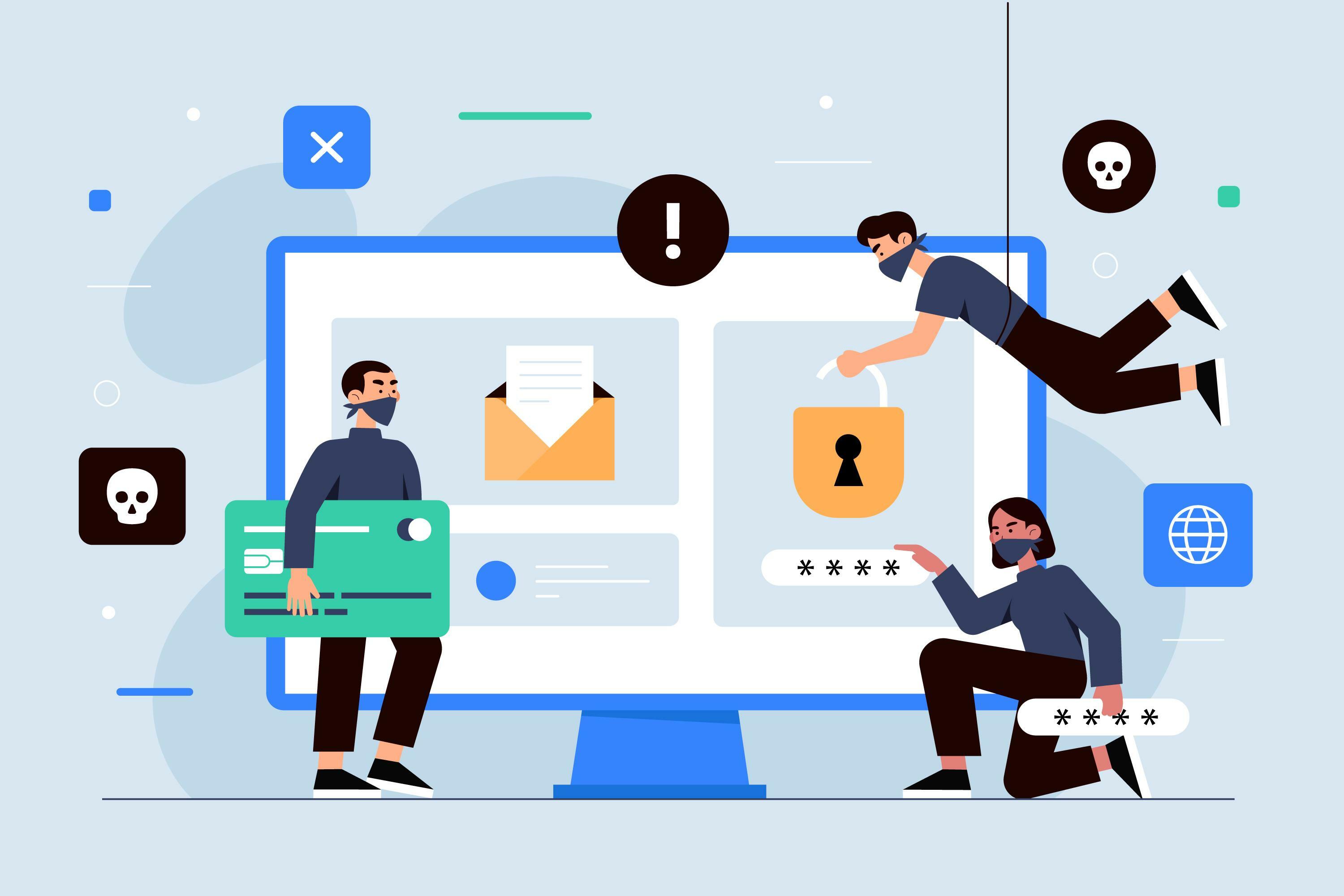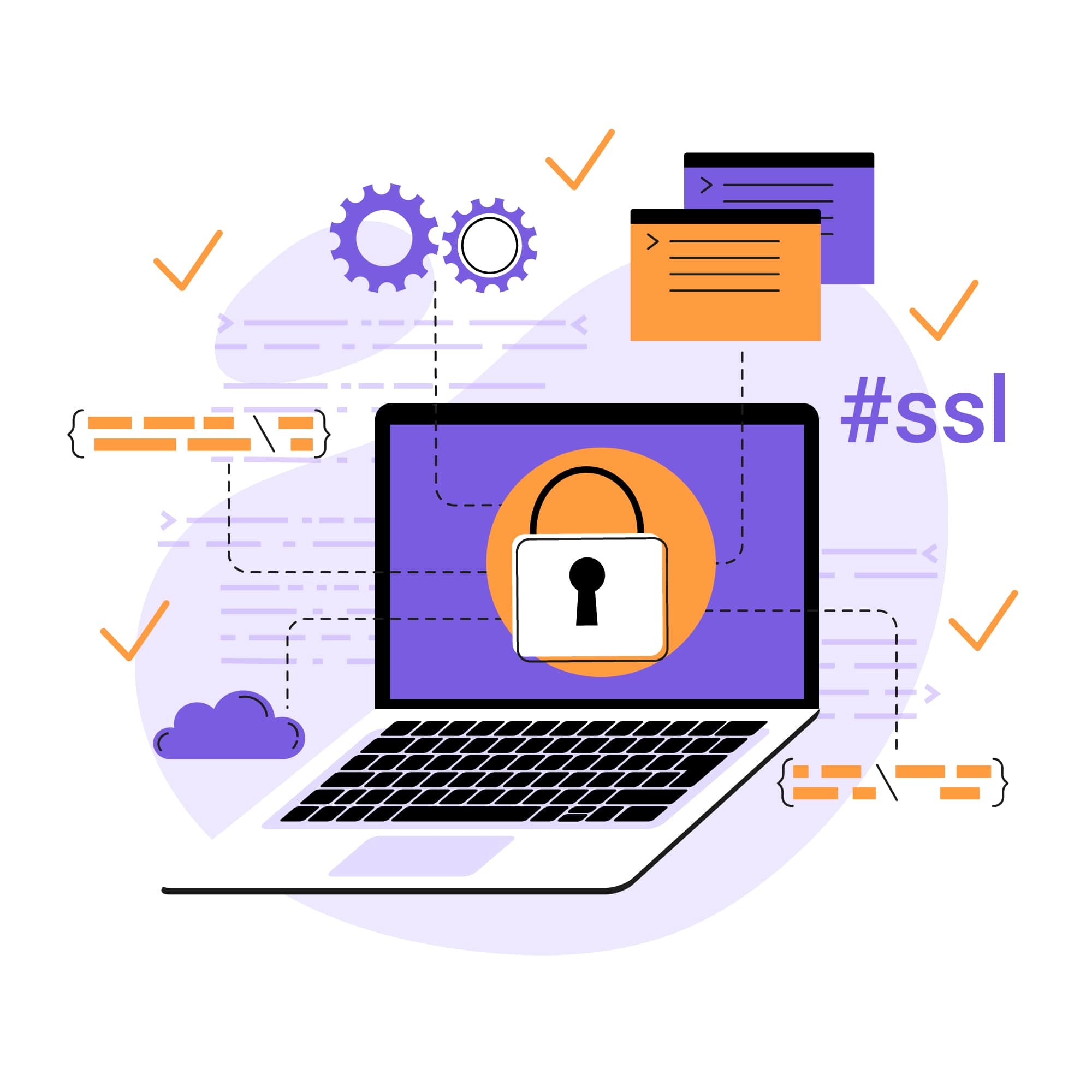
SQL Injections: What They Are & How to Prevent Attacks?
SQL injection is a common tactic in cybercrime and listed as a top security threat by the OWASP Top 10, a powerful awareness document representing the most critical security risks to web applications. If you’re not protecting your website from this cyberattack, your business and customers could be at risk.
In this article, we’ll go over what SQL injections are, how they work, the different types, and how to prevent them.
What is a SQL injection?
There are different types of SQL injection attacks, also called SQLi, but they all involve injecting modified SQL queries within input fields on a web form. This method returns sensitive, sought-after data within the database, such as usernames, passwords, credit card data, and other personal identifiable information (PII).
In some cases, an attacker can breach an application’s database through a website form designed to accept user input, which is then passed to the back-end database. In other instances, the attacker may modify cookies to poison a database query or forge HTTP headers to inject code into the database if the web application fails to sanitize those inputs.
How does it work?
Structured Query Language (SQL) is a programming language designed for managing data within relational database systems. It facilitates executing SQL commands for tasks such as data retrieval, updates, and record deletion. To execute harmful commands, attackers can embed malicious code within query strings sent to a SQL server. There are several methods for executing attacks, with susceptible entry points often being user-input fields such as text-containing forms on web applications or web pages.
SQL injection example
Suppose you have a login form on a website where users enter their username and password to access their accounts. The SQL query to check user credentials might look like this:
SELECT * FROM users WHERE username = '<username>' AND password = '<password>';
Now, an attacker could enter the following in the username field:
' OR '1'='1
If the application doesn't properly sanitize and validate input, the SQL query sent to the database would become:
SELECT * FROM users WHERE username = '' OR '1'='1' AND password = '<password>';
Since '1'='1' is always true, this modified query will always return a valid user, effectively bypassing the authentication process and granting the attacker access to the application. This is just a basic example, but it showcases the fundamental concept of SQL injection, where malicious input alters the intended query behavior.
3 Types of SQL injection attacks
1. In-band SQL injection
Also known as Classic SQL injection, In-band SQLi is a type of cyberattack where an attacker manipulates a web application's input fields to inject malicious code. This code is then executed by the application's database, allowing the attacker to retrieve, modify, or delete sensitive data.
It occurs when the attacker can directly retrieve the results of the injected query, making it a relatively straightforward method of attack. This type of injection can lead to unauthorized access, data leakage, and potentially compromise the entire application if not properly mitigated through input validation and secure coding practices.
2. Inferential SQL injection
Also called Blind SQL injection or Blind SQLi, Inferential SQLi is a complex attack. Hackers inject malicious SQL code into web app inputs, inferring success from app behavior or responses without directly retrieving data. Detecting and preventing this is difficult, as signs of manipulation might not be evident. It risks unauthorized data access, compromising apps and databases if your defense is not sufficient.
The two types of inferential SQL injection attacks use the following techniques:
Boolean injection: A technique in which attackers can manipulate a web application's input to exploit its interaction with a database. By leveraging Boolean-based queries that result in either true or false responses, attackers can deduce information about the database structure and content, potentially extracting sensitive data or gaining unauthorized access.
Time-based injection: With this technique, attackers can exploit web application vulnerabilities by causing delays in the application's response time. By injecting malicious SQL queries that introduce artificial time delays, attackers can gauge the impact on response times, allowing them to infer database structure and extract valuable information.
This can lead to unauthorized data access, allowing attackers to extract sensitive information, gain control over an application, or compromise the underlying database if defenses against a blind SQLi attack are inadequate.
3. Out-of-Band SQL injection
Also, an advanced attack method, Out-of-Band SQLi involves hackers manipulating web application inputs to trigger communications with external entities controlled by the attacker, such as a web server they manage. This enables attackers to extract sensitive information or control the targeted system, bypassing traditional in-band communication between the application and the database.
The impact of data breaches
Cybercriminals love a successful SQL injection because it’s versatile. It can be used to modify or destroy proprietary data, steal customer information, and take complete control of a website. And it’s not always easy to detect. Even if an application correctly sanitizes user input to prevent an immediate attack, that poisoned data will be stored locally and can wreak havoc when used in a different context in the future.
Cybercriminals who deploy SQL injection attacks are usually after the same thing, sensitive data. Their goal is to pinpoint vulnerable database servers to hijack the data being stored — usually PII — which can then be sold to the highest bidder on the dark web.
Why is PII so valuable? Imagine you had the personal information belonging to a physician who bills healthcare payers electronically. You could make a fortune by sending fraudulent bills to insurers or Medicare. On the dark web, you could purchase the records you need to carry out that operation for about $500 — but you would stand to gain millions.
Medical records aren’t the only PII that cybercriminals are after, though. Any business that collects and stores data on local servers is vulnerable to SQL injection attacks. That includes eCommerce companies, real estate, law firms, banks, and agencies. Website owners who collect information such as home addresses, phone numbers, birthdates, and Social Security numbers present an especially appealing target for attackers due to the quality of information.
How to prevent SQLi attacks
In some circumstances, an attacker can breach your site undetected, and the effects of a second-order SQL injection attack may not become obvious until long after the initial attack. In other instances, you may notice signs such as modified posts or comments on your website, new admin users, modified passwords, or a disconnected CMS. Fortunately, there are ways to prevent SQL injection attacks before they occur. Start by following these steps:
1. Keep software up to date
Every site owner must diligently keep security patches up to date. That means performing updates as soon as they become available. It’s also important to keep plugins, themes, and your CMS core files updated at all times to prevent these attacks and other forms of malware.
2. Choose plugins wisely
Plugins may be useful to your website (because they provide enhancements for SEO, social media engagement, and more), but they’re also useful to attackers. Every plugin represents an additional attack vector that can be leveraged to breach your site, so be thoughtful about the ones you choose to install. Remove the ones you don’t need or that haven’t been updated in more than a year, as these can result in weak entry points for your website due to outdated code.
3. Add layers of security
Begin by granting SQL database accounts the minimum necessary privileges. It's crucial to avoid sharing these accounts across distinct websites and applications to mitigate cross-contamination risks. Employ comprehensive input validation for all user-supplied data, encompassing even drop-down menus, to fend off malicious inputs. You can further enhance security by configuring error reporting mechanisms that avoid exposing database error messages to the client web browser, reducing potential avenues for attackers to exploit vulnerabilities.
4. Sanitize input fields
All user-submitted data on contact forms or other input fields is vulnerable to cybercriminals trying to gain unauthorized access to your database. Using an input validation function, such as a MySQL escape string, can ensure any malicious strings are not passed to an SQL query. Sanitizing input fields acts as a filter for user data to ensure only information that meets specific criteria can be entered. For example, if you ask users to enter their phone numbers, the input field should only allow numbers, dashes, and parentheses.
5. Don’t trust any user input
Employ prepared statements alongside parameterized queries. By encapsulating and defining all SQL code within these statements, each parameter is systematically passed, effectively thwarting any attempts by attackers to alter query intent subsequently. Additionally, integrate stored procedures to construct SQL statements enriched with parameters stored within the database, and subsequently invoked from the application. This strategic approach adds an extra layer of protection, reducing the exposure of raw SQL code and reinforcing the security framework against potential attacks.
6. Install a vulnerability scanner
Automated scanners perform deep website scans to identify and patch vulnerabilities before cybercriminals can exploit them. These make your site more resilient to different types of SQL injection attacks as well as other malware.
7. Use a web application firewall
A web application firewall (WAF) plays a significant role in preventing SQL injection attacks by filtering bad bots and malicious threats out of your site. While shopping around for a WAF, it’s best to look for one that utilizes the OWASP Top 10 threats to better protect against these stealthy attacks.
Best practices for mitigation
Mitigating future attacks is vital for preventing unauthorized access and data breaches. Effective measures, such as input validation and parameterized queries, database safeguards, and ensuring data integrity are important but not enough.
Educate development teams
Training development teams on how to handle SQL injection vulnerabilities is paramount to your overall web security. By comprehending the potential risks and learning proper coding practices, developers can implement effective countermeasures during the design and development stages. This proactive approach helps prevent exploitable vulnerabilities, safeguards sensitive data, and ensures the creation of robust web applications that are resistant to attacks.
Implement an incident response plan
Creating a plan or cheat sheet of sorts to minimize the impact of potential attacks will help maintain business continuity. The plan should encompass swift detection of the attack, isolating affected systems, and involving cybersecurity experts to analyze the extent of the intrusion. Communication with stakeholders, including customers and regulatory bodies, is vital for transparency. Remediation involves patching vulnerabilities, restoring compromised data, and enhancing security measures to prevent recurrence. Regular testing and refinement of the plan ensure readiness to effectively manage incidents.
Work with cybersecurity experts
If your business doesn’t have the in-house security experts to prevent SQL injection attacks, you’re not alone. Using comprehensive cybersecurity solutions designed for all businesses, SiteLock can help protect your site against these attacks and other cyberthreats. Take advantage of our services and competitive pricing so cybercriminals won’t be able to take advantage of you.





